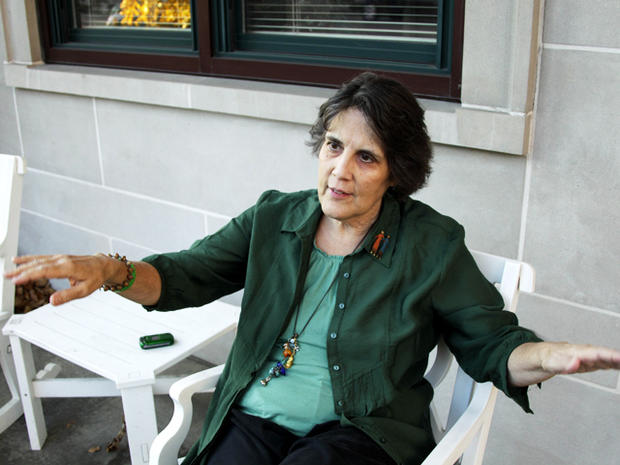Livers for alcoholics debated after controversial new study
(CBS/AP) Do gravely ill alcoholics deserve new livers? A new study suggests that alcoholics should not have to stay sober for six months before they can get a new liver, intensifying the debate over whether people who destroy their organs by drinking deserve new ones.
In the small French study, most of the patients who got a liver without the wait stopped drinking after surgery and stayed sober for years. The study involved patients who had been suffering from alcohol-related hepatitis so severe that they were unlikely to survive a six-month delay. In addition to hepatitis, heavy drinking can cause liver cirrhosis - another common reason for liver transplants.
The finding, reported in Thursday's New England Journal of Medicine, could boost demand for livers, which are already in scarce supply. It could also reopen a bitter dispute over whether alcoholics should get transplants.
The controversy arose in the 1990s when hard-drinking celebrities like Larry Hagman, David Crosby, and Mickey Mantle got liver transplants. More recently, British soccer star George Best got a new liver in 2002 - but started drinking again and died three years later.
Currently, nearly one in five liver transplants in the U.S. go to current or former heavy drinkers. Transplant hospitals typically require patients waiting for a new liver to give up alcohol for six months as a way to show they're serious about staying sober after the operation.
The study's lead author, Dr. Philippe Mathurin of Huriez Hospital in Lille, France, said the six-month rule may be unfair. He said alcoholic patients are just as deserving as other liver patients, many of whom have diseases caused by poor lifestyle choices such as drug use or obesity.
Dr. Robert S. Brown Jr., transplant director of New York-Presbyterian Hospital in New York City, agreed it is time to rethink the six-month rule.
"The challenge of this paper is to come up with better ways, both to treat alcoholism as a disease and to predict who will succeed with transplantation," he said.
Mathurin acknowledged that such a change could put more patients on the waiting list for organs. "It means we have to increase the number of donors," he said.
Nearly 6,300 liver transplants were performed last year in the U.S., but more than 1,400 Americans died waiting for a new liver, according to the United Network for Organ Sharing. Adding more people to the list could mean longer waits and more deaths among non-drinkers.
Preschool teacher Jane Sussman, 59, has been waiting for a liver for more than a year. Doctors don't know what caused her liver problem, but it wasn't alcohol and she's never been a drinker. She doesn't want the list to get longer by adding more alcoholics.
"Who knows for sure if they're not going to start drinking right way?" Sussman said from her temporary home in Pittsburgh near her transplant hospital. An organ from a deceased donor is "the most amazing gift you'll get in your life. If you don't treat it right, it's a wasted gift that could have gone to someone else, like myself."
The French study involved 26 alcoholics with severe hepatitis who were not helped by drug treatment. All had support from family or friends. The patients pledged to quit drinking and received transplants. They were compared with a group of similar liver disease patients who weren't offered transplants.
Not surprisingly, those who got transplants fared better: 77 percent were still alive six months later, compared with 23 percent of those who didn't get new livers.
Few of the transplant patients fell off the wagon. Only three started drinking again two to three years later, a rate much lower than the estimated 30 percent relapse rate in general among alcoholic patients who meet the six-month sobriety rule.
Dr. Christopher Hughes, director of liver transplantation at University of Pittsburgh Medical Center, said he is worried the pool of potential organ donors could shrink if the public believes organs are going to drinkers.
"I think this will be very controversial. I don't think you'll find a lot of support for adopting this," Hughes said.
What do you think? Should heavy drinkers get new livers just like other patients?
